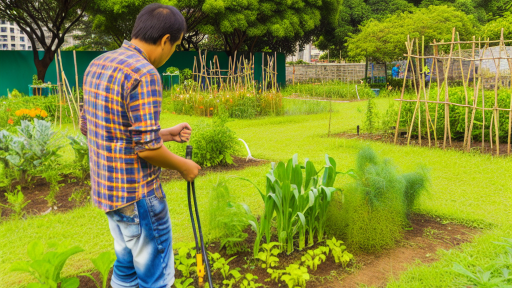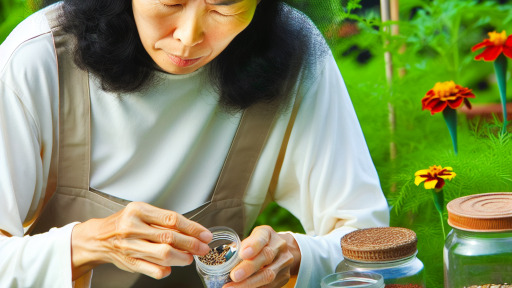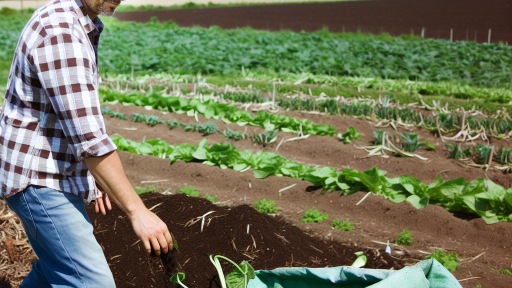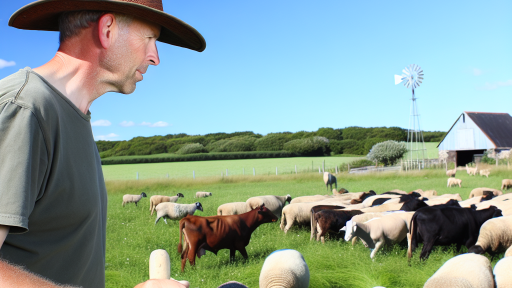Definition of Heirloom Plants
Heirloom plants are varieties that are passed down through generations.
They often come from seeds that have not been genetically modified.
Consequently, these plants maintain their unique characteristics over time.
Furthermore, heirloom plants are known for their rich flavors and diverse colors.
Farmers value these plants for their adaptability to local conditions.
They are often open-pollinated, meaning they can reproduce naturally.
This also means that farmers can save seeds for future crops.
As a result, heirloom varieties promote biodiversity in farming systems.
Characteristics of Heirloom Plants
Heirloom plants exhibit several notable traits.
Firstly, they typically have a unique flavor profile.
This quality makes them popular among farmers and chefs alike.
Secondly, heirloom plants often have a historical backstory.
Each variety carries a story, connecting farmers to their heritage.
Additionally, heirloom plants thrive in diverse growing conditions.
This flexibility enables them to adapt to various climates and soils.
Transform Your Agribusiness
Unlock your farm's potential with expert advice tailored to your needs. Get actionable steps that drive real results.
Get StartedFinally, these plants contribute to a sustainable food system.
They help maintain traditional agricultural practices and knowledge.
Benefits of Growing Heirloom Plants
There are numerous advantages to growing heirloom plants.
- They enhance biodiversity in gardens and farms.
- Heirloom plants often resist pests and diseases better than hybrids.
- They encourage seed saving, promoting sustainability.
- Their distinct flavors attract food enthusiasts and chefs.
Moreover, heirloom plants support local economies.
Farmers can sell unique varieties at farmers’ markets or restaurants.
This practice fosters a connection between consumers and producers.
As a result, heirloom plants contribute to a vibrant local food culture.
Definition of Hybrid Plants
What Are Hybrid Plants?
Hybrid plants are the result of crossbreeding two different plant varieties.
This process typically aims to combine desired traits from each parent plant.
Farmers often use hybridization to produce stronger and more resilient plants.
Characteristics of Hybrid Plants
Hybrid plants usually show enhanced vigor, known as hybrid vigor or heterosis.
This vigor allows them to grow faster and yield more than their parent varieties.
They also tend to be more resistant to diseases and pests.
Furthermore, hybrid plants can thrive in various environmental conditions.
Benefits of Hybrid Plants
Farmers benefit from greater consistency in the quality of hybrid crops.
These plants often mature more quickly, allowing for earlier harvesting.
Additionally, numerous hybrids offer increased resistance to environmental stressors.
Farmers can also reduce pesticide use with more resistant hybrid varieties.
Popular Hybrid Varieties
Many popular fruits and vegetables are hybrid varieties.
- Hybrid tomatoes are known for their high yield and flavor.
- Hybrid corn is favored for its drought resistance and high productivity.
- Hybrid peppers also offer improved disease resistance and color.
Understanding these hybrids helps farmers make informed planting decisions.
Comparison of Genetic Diversity: Heirloom vs. Hybrid
Understanding Heirloom Varieties
Heirloom seeds come from plants cultivated over generations.
These seeds offer high genetic diversity.
Farmers appreciate their adaptation to local environments.
Furthermore, heirlooms often possess unique flavors and colors.
Showcase Your Farming Business
Publish your professional farming services profile on our blog for a one-time fee of $200 and reach a dedicated audience of farmers and agribusiness owners.
Publish Your ProfileThis diversity can enhance resilience against pests and diseases.
Exploring Hybrid Varieties
Hybrid seeds result from crossbreeding two different parent varieties.
This process aims to enhance specific traits.
Hybrids usually exhibit uniformity in growth and yield.
Additionally, they often show resistance to certain diseases.
However, their genetic diversity is typically lower than heirlooms.
The Importance of Genetic Diversity
Genetic diversity plays a crucial role in agriculture.
It improves ecosystem health and resilience.
Farmers benefit from diverse crops in changing climates.
Moreover, diverse varieties help in sustainable pest management.
Heirlooms can help maintain genetic diversity in farming systems.
Choosing Between Heirloom and Hybrid
Farmers should consider their specific needs when choosing seeds.
Heirlooms are ideal for those seeking biodiversity and heritage.
In contrast, hybrids may suit those prioritizing high yields.
Ultimately, the choice depends on individual goals and farming practices.
You Might Also Like: Natural Pest Control Strategies for Farmers
Impact on Flavor and Nutrition: Heirloom vs. Hybrid
Understanding Heirloom Varieties
Heirloom varieties are known for their rich flavors.
These plants often carry unique characteristics.
Farmers appreciate the diverse tastes they offer.
Additionally, heirlooms often boast better nutrient profiles.
Studies reveal that they may contain more vitamins and minerals.
Moreover, consumers tend to prefer their flavors over hybrids.
Exploring Hybrid Varieties
Hybrid varieties are bred for consistency and yield.
This approach often results in a more uniform taste.
Hybrids usually prioritize disease resistance and productivity.
However, some critics argue they lack flavor depth.
Nutrition levels may vary significantly in hybrids.
For instance, certain hybrids have lower antioxidant levels.
Flavor Comparison: Heirlooms vs. Hybrids
Flavor profiles differ dramatically between the two types.
Heirlooms can offer bold, complex tastes.
Conversely, hybrids might provide milder, less distinct flavors.
This can affect consumer preferences in the market.
Farmers need to consider this when selecting crops.
Nutritional Value: A Closer Look
Nutritional content can influence purchasing decisions.
Heirlooms often contain higher levels of vitamins.
On the other hand, hybrids may deliver more predictable yields.
This predictability can benefit commercial farming dramatically.
Market Trends and Consumer Preferences
Consumers increasingly favor heirloom varieties today.
They often seek out unique, flavorful produce in stores.
Farmers might focus on heirlooms to tap into this trend.
Showcase Your Farming Business
Publish your professional farming services profile on our blog for a one-time fee of $200 and reach a dedicated audience of farmers and agribusiness owners.
Publish Your ProfileHowever, hybrids remain popular for their reliability.
Ultimately, understanding consumer preferences is key.
Find Out More: Light Requirements For Container-Grown Crops
Growing Conditions and Yield Potential: Which is Better?
Understanding Heirloom Varieties
Heirloom crops thrive in diverse growing conditions.
These plants often adapt well to local environments.
Farmers can select varieties suited to their specific climates.
Furthermore, heirloom seeds can exhibit unique flavors.
The yield potential of heirloom varieties may be lower.
However, they often produce high-quality produce.
Farmers who value taste may prefer heirloom options.
Exploring Hybrid Varieties
Hybrid crops are engineered for increased yield.
They often resist pests and diseases more effectively.
Farmers generally see consistent results with hybrids.
They may also adapt quickly to various soil types.
However, hybrids require specific growing conditions for optimal results.
Many farmers appreciate the reliability of hybrids.
Comparative Analysis of Growing Conditions
Heirloom varieties often require less-intensive care.
They may flourish in organic farming systems.
In contrast, hybrids might need more resources and inputs.
This could include fertilizers and pesticides.
Farmers should evaluate their growing conditions carefully.
Moreover, local climate plays a significant role in success.
Yield Potential: Heirloom vs. Hybrid
Hybrid crops generally offer higher yield potential.
Farmers can expect larger quantities per acre.
However, heirloom varieties may produce unique advantages.
They often have better adaptability in specific regions.
Consequently, smaller farms can benefit from heirloom crops.
Ultimately, yield potential will depend on multiple factors.
These include farming practices and market demand.
Gain More Insights: Vertical Edible Landscaping Solutions
Market Demand: Consumer Preferences for Heirloom vs. Hybrid
Understanding Consumer Preferences
Consumers today place a high value on food quality.
They often seek out produce that is flavorful and unique.
Many shoppers associate heirloom varieties with rich tastes.
Consequently, these varieties have become popular in farmer’s markets.
Hybrid varieties focus on consistency and reliability.
Many consumers appreciate the uniformity of hybrids for their cooking needs.
This balance between uniqueness and consistency influences purchasing decisions.
Reasons for Choosing Heirloom Varieties
Heirloom crops boast historical significance and genetic diversity.
These crops may offer unique flavors not found in hybrids.
Moreover, consumers appreciate their vibrant colors and shapes.
Showcase Your Farming Business
Publish your professional farming services profile on our blog for a one-time fee of $200 and reach a dedicated audience of farmers and agribusiness owners.
Publish Your ProfileAlso, heirlooms often tie into the local farm-to-table movement.
This trend encourages support for local farmers and biodiversity.
Advantages of Hybrid Varieties
Hybrid crops generally provide higher yields than heirlooms.
Farmers favor hybrids for their disease and pest resistance.
This resilience allows for lower production costs and higher profits.
Consumers also benefit from longer shelf life and storage capabilities.
Many shoppers value the convenience these traits provide.
Market Trends and Future Outlook
The demand for heirloom vegetables continues to rise.
As consumers become more health-conscious, this trend is likely to persist.
However, hybrids will remain important for large-scale farming.
In urban areas, interest in local and unique produce grows.
This growing interest creates opportunities for both heirloom and hybrid crops.
Delve into the Subject: Best Practices For Seed Propagation On Farms
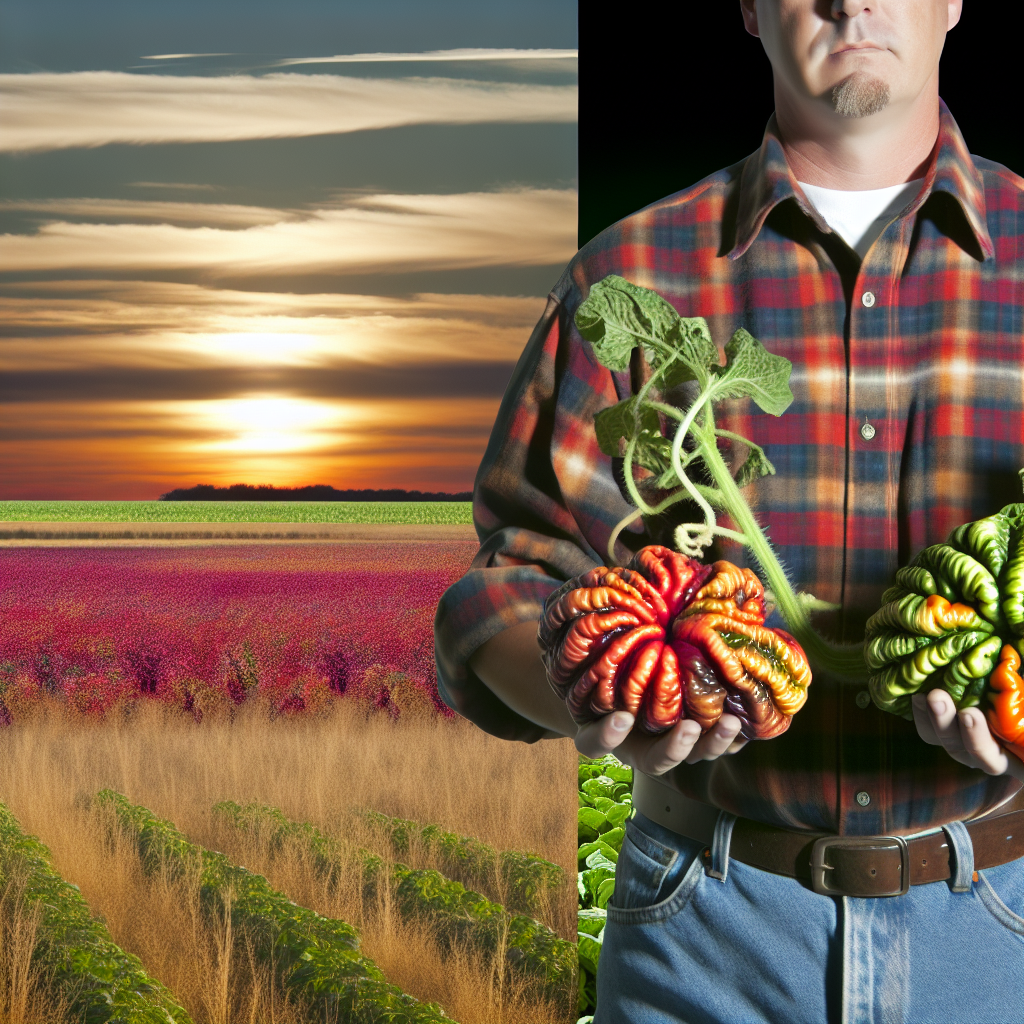
Sustainability and Environmental Impact: Heirloom vs. Hybrid Farming
Understanding Heirloom Varieties
Heirloom varieties contribute significantly to sustainability.
They foster biodiversity by preserving unique genetic traits.
Moreover, they often require fewer chemical inputs compared to hybrids.
This reduces environmental impact and promotes soil health.
Farmers can save seeds from heirloom plants for future planting.
The Role of Hybrid Varieties
Hybrid varieties are designed for higher yields.
They are often more resilient to diseases and pests.
This resilience can lead to increased food security.
However, hybrids can depend on synthetic fertilizers and pesticides.
This dependency may harm the environment over time.
Assessing Environmental Impact
Evaluating each type’s environmental impact is crucial.
Heirloom farming practices often promote organic methods.
This leads to healthier ecosystems and less soil degradation.
On the other hand, hybrid farms can deplete local biodiversity.
They frequently prioritize production over ecological balance.
Long-Term Sustainability
Long-term sustainability aligns with heirloom cultivation.
Maintaining traditional farming techniques aids in resource conservation.
Heirlooms can adapt to local climates better than hybrids.
Consequently, they can thrive with less intervention.
Farmers practicing heirloom farming often enjoy better soil health over time.
Making Informed Choices
Farmers must weigh the benefits of each option.
Emphasizing sustainability is key for future generations.
Choosing heirloom crops can enhance ecosystem resilience.
Yet, hybrid crops can offer immediate benefits in yield.
Ultimately, the decision should align with individual farming goals.
Best Practices for Cultivating Heirloom and Hybrid Varieties
Choosing the Right Seeds
Selecting the right seeds is crucial for success.
Heirloom seeds offer unique flavors and biodiversity.
Showcase Your Farming Business
Publish your professional farming services profile on our blog for a one-time fee of $200 and reach a dedicated audience of farmers and agribusiness owners.
Publish Your ProfileHybrid seeds provide disease resistance and higher yields.
Evaluate your farm’s specific needs to make the best choice.
Understanding Growth Requirements
Different varieties have distinct growth requirements.
Heirlooms often thrive in specific climates and soils.
On the other hand, hybrids may adapt better to varying conditions.
Research these conditions before planting.
Implementing Crop Rotation
Crop rotation enhances soil health and pest management.
Heirlooms benefit from rotation to prevent soil nutrient depletion.
Similarly, hybrids can also reduce disease risk through rotation.
Plan your rotation schedule for optimal growth.
Using Organic Practices
Organic farming practices promote healthier crops.
Heirloom varieties often perform well with organic methods.
Hybrids can also thrive under organic management systems.
Organic fertilizers and pest control can be beneficial for both types.
Water Management Techniques
Effective water management is vital for healthy plants.
Heirlooms may require specific irrigation methods.
Hybrids often withstand drought better than heirlooms.
Assess your water availability and plan accordingly.
Monitoring for Pests and Diseases
Regular monitoring helps catch issues early.
Heirlooms might attract unique pests due to their specific traits.
Hybrids usually offer some resistance to common diseases.
Employ integrated pest management techniques to protect your crops.
Harvesting and Seed Saving
Harvest at the right time to ensure quality produce.
Heirloom varieties allow for seed saving for future planting.
Hybrids generally do not produce seeds that breed true.
Plan your harvest and seed-saving practices effectively.
Marketing Your Produce
Understanding your target market can enhance sales.
Heirloom varieties may attract niche markets seeking unique products.
Hybrids are often favored by commercial buyers for consistency.
Develop a marketing strategy that highlights your strengths.
Economic Considerations: Cost of Seeds and Returns on Investments
Understanding Seed Costs
The cost of seeds significantly impacts a farmer’s budget.
Heirloom seeds typically cost less than hybrid seeds.
However, hybrid seeds often offer higher yields.
Farmers must evaluate initial investments carefully.
Ultimately, the choice can affect overall profitability.
Return on Investment
Calculating returns on investments is crucial for farmers.
Heirloom crops can provide unique market opportunities.
These crops may fetch higher prices at local markets.
In contrast, hybrid seeds usually guarantee more uniform yields.
This leads to more consistent revenue streams.
Showcase Your Farming Business
Publish your professional farming services profile on our blog for a one-time fee of $200 and reach a dedicated audience of farmers and agribusiness owners.
Publish Your ProfileMarket Trends
Farmers should be attuned to market demand for each type of seed.
Heirloom varieties are becoming increasingly popular.
Consumer interest in organic and locally-sourced food drives this trend.
Hybrid seeds may still dominate larger agricultural markets.
The choice of seed can depend on local consumer preferences.
Long-Term Considerations
Farmers need to consider crop rotation and sustainability.
Heirloom seeds can contribute to biodiversity and soil health.
Hybrid seeds may require more chemical inputs over time.
Farming practices can affect long-term profitability.
Investing in the right seeds is a step toward sustainable farming.
Case Studies: Successful Farmers Using Heirloom and Hybrid Methods
Innovative Practices in Heirloom Farming
Maria Gonzalez runs a small organic farm in California.
She specializes in heirloom tomatoes and peppers.
Maria values the unique flavors and textures of heirloom varieties.
She engages in seed saving to maintain her crops each year.
This practice ensures genetic diversity on her farm.
As a result, she attracts a loyal customer base at local farmers’ markets.
In addition, her heirloom produce garners attention from gourmet restaurants.
Sustainable Hybrid Approaches
On the other hand, Tom Richards operates a large-scale farm in Iowa.
He focuses primarily on hybrid corn and soybeans.
Tom embraces the latest agricultural technology to maximize yields.
His use of hybrid seeds allows for resilience against pests and diseases.
Additionally, he invests in GPS technology for precise planting and harvesting.
These methods lead to increased productivity on his farm.
Consequently, this approach has improved his profit margins significantly.
Comparative Insights
Both Maria and Tom demonstrate the advantages of their chosen methods.
Heirloom farming fosters biodiversity and unique product offerings.
Conversely, hybrid farming focuses on maximizing yield and efficiency.
Farmers must weigh these factors according to their goals and local conditions.
Ultimately, both approaches contribute positively to sustainable agriculture.
Additional Resources
Small Scale Wholesale | High Mowing Organic Non-GMO Seeds
Micro Farming: Growing Wheat in Your Backyard : 4 Steps (with …

